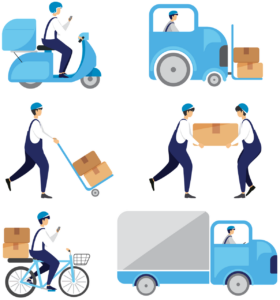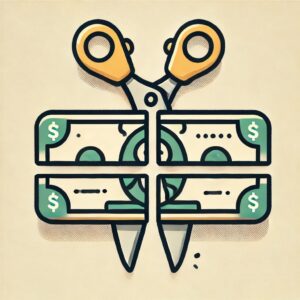 How Does Wage Garnishment Work in the Gig Economy?
How Does Wage Garnishment Work in the Gig Economy?
How does wage garnishment for gig economy workers happen? And what can I do to protect myself as a gig worker from having my wages garnished?
The Gig Economy and Your Wages
Millions of Americans are part of the gig economy, which just means you earn income on your own schedule without a traditional employer.
But what happens if you fall behind on your debts? Can creditors still garnish your wages if you don’t have a boss cutting you a regular paycheck?
The short answer is yes, wage garnishment can still happen. But it works a little differently for gig workers. So if you drive for Uber, deliver for DoorDash, freelance, work for yourself online, or have some other gig job, you should know how the system works and how to protect yourself.
 How Wage Garnishment Works for Traditional Workers
How Wage Garnishment Works for Traditional Workers
Under wage garnishment, a creditor takes a portion of your income directly to repay a debt.
For traditional employees, this means your employer withholds the money from your paycheck after a court order requires it.
But if you’re self-employed or a gig worker, you don’t get a standard paycheck. In that case, the process looks different, but not off the table.
Normally, here’s how it goes:
- First, you fall behind on a debt.
- The creditor sues you and gets a judgment in court.
- They request a garnishment order from the court.
- That order is sent to your employer, who has to withhold a portion of your wages and send it to the creditor.
Federal law limits how much can be taken, but it’s usually up to 25% of your disposable income.
Can Gig Workers Be Garnished?
If you work in the gig economy, you may not have a formal employer, but you can still be targeted by creditors in a few different ways:
Bank Account Levy
Instead of garnishing wages, a creditor can freeze and withdraw money directly from your bank account. This is especially common with gig workers, since most of your income likely gets deposited directly into your checking or savings account.
Once a judgment is entered against you, creditors can ask the court for permission to levy your bank account. Sometimes they don’t even have to notify you until it happens.
 1099 Income Garnishment
1099 Income Garnishment
If you’re working as an independent contractor (which is how most gig platforms classify workers), some courts allow creditors to garnish future payments from those companies.
That means your clients – or even platforms like Lyft, Grubhub, or Instacart – might receive a court order requiring them to send part of your pay directly to the creditor.
This isn’t as straightforward as wage garnishment for W-2 employees, but it can be done, depending on your state’s laws.
Liens on Business Income or Assets
If you own and operate a small gig-based business, creditors can place a lien on your income or business assets after getting a judgment.
This might apply to a variety of business owners from freelance designers to personal trainers, private nail techs to tutors.
Liens like this could make it harder to access your earnings or grow your business.
 What Can You Do to Stop It?
What Can You Do to Stop It?
Gig workers often face financial instability like irregular pay, lack of benefits, and unexpected expenses. So in this unpredictable environment, garnishment can hit especially hard.
If you’re being threatened with garnishment or already facing collection efforts, you do have some options:
First, you can try to negotiate with the creditor. You may be able to work out a payment plan before any garnishment starts.
You can also look for claim exemptions. Some income may be protected, depending on your state laws.
And lastly, you have the option of bankruptcy. Bankruptcy stops most garnishment immediately through an automatic stay. It can also wipe out the debt entirely or give you a chance to repay it over time.
 Don’t Wait Until It Gets Worse
Don’t Wait Until It Gets Worse
If you’re a gig worker struggling with debt, don’t assume you’re untouchable just because you’re not a traditional employee. Creditors have other tools, and they’re using them more and more.
Wage garnishment, account levies, and other actions can hit your finances hard, especially when your income already feels unpredictable.
But you’re not powerless.
As a bankruptcy lawyer, I help people like you stop garnishment, take back control of their income, and get a fresh start.
If you’re worried about losing your gig income to creditors, contact me today for a free consultation. You’ve worked hard for your money, and we can help make sure you keep it.
